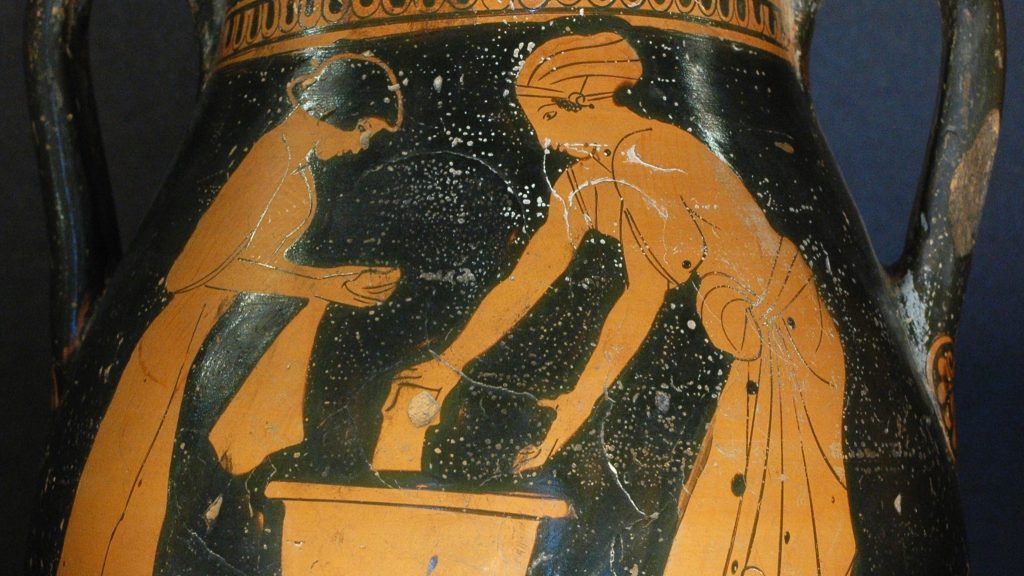In ancient Rome, laundries relied on an unusual and somewhat unpleasant cleaning agent.
Others are reading now
In ancient Rome, laundry work was not for the faint of heart.
Without access to modern cleaning products, Roman laundries, or fullonicae, relied on an unconventional yet effective detergent: human urine.
While this method may seem unappealing by today’s standards, the Romans harnessed the chemical power of urine to dissolve stains and grease from textiles, making it an indispensable resource for their cleaning industry.
But why urine?
Also read
Urine contains ammonia, a compound still used in some cleaning products today due to its ability to break down fats and remove stains.
In Rome, it was both abundant and free. From the poorest slave to the emperor himself, everyone contributed to the “supply chain,” urinating into clay pots that were later sold to nearby laundries.
The Process of Cleaning Clothes
According to an article in Historie, the work of a fullonica was labor-intensive and far from glamorous:
-
Collection: Urine from homes and public urinals was gathered and brought to laundries.
-
Stomping in Tubs: Clothes were placed in large tubs filled with urine, and workers—often slaves—had to stomp barefoot in the mixture to ensure the ammonia penetrated the fabric.
-
Rinsing and Deodorizing: After soaking, clothes were rinsed in water and treated with types of clay to neutralize the pungent smell.
-
Scrubbing and Drying: The garments were scrubbed, rinsed again, and hung in the sun to dry.
Despite the unpleasantness, this process yielded clean and refreshed clothing for Roman customers.
For the workers, known as fullones, the job came with serious health risks.
Prolonged exposure to the urine caused skin irritation, painful wounds, and in some cases, disfigurement due to infections. Poverty, however, left many with no choice but to endure these conditions to survive.

